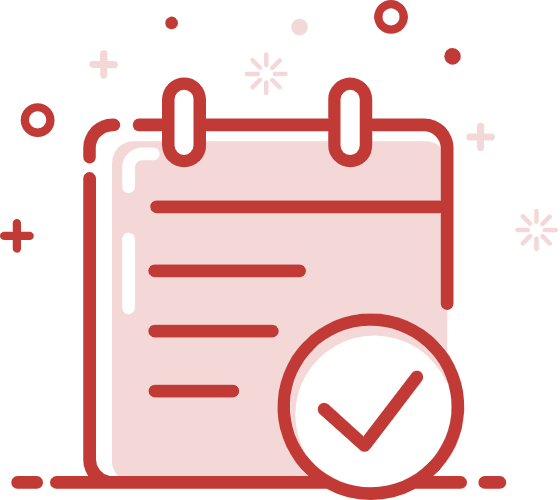|
TMPY-02005
|
Mucin-1/MUC1 Protein, Human, Recombinant (hFc)
|
Human
|
HEK293 Cells
|
|
Mucin-1/MUC1 Protein, Human, Recombinant (hFc) is expressed in HEK293 mammalian cells with hFc tag. The predicted molecular weight is 42 kDa and the accession number is P15941-11.
|
|
TMPY-04340
|
Mucin-1/MUC1 Protein, Human, Recombinant
|
Human
|
HEK293 Cells
|
|
Mucin-1/MUC1 Protein, Human, Recombinant is expressed in HEK293 mammalian cells. The predicted molecular weight is 15.4 kDa and the accession number is P15941-11.
|
|
TMPJ-00155
|
Mucin-1/MUC1 Protein, Human, Recombinant (hFc&Avi), Biotinylated
|
Human
|
HEK293 Cells
|
|
Mucin-1, is a membrane-bound protein that is a member of the mucin family. Mucins are O-glycosylated proteins that play an essential role in forming protective mucous barriers on epithelial surfaces. These proteins also play a role in intracellular signaling. This protein is expressed on the apical surface of epithelial cells that line the mucosal surfaces of many different tissues including lung, breast stomach and pancreas. MUC-1 exclusively located in the apical domain of the plasma membrane of highly polarized epithelial cells. MUC-1 can act both as an adhesion and an anti-adhesion protein. This protein may provide a protective layer on epithelial cells against bacterial and enzyme attack. MUC-1 participated in modulates signaling in ERK, SRC and NF-kappa-B pathways. In activated T-cells, MUC-1 influences directly or indirectly the Ras/MAPK pathway. MUC-1 promotes tumor progression and regulates TP53-mediated transcription and determines cell fate in the genotoxic stress response.
|
|
TMPY-02871
|
Mucin-1/MUC1 Protein, Human, Recombinant (mFc)
|
Human
|
HEK293 Cells
|
|
Mucin-1/MUC1 Protein, Human, Recombinant (mFc) is expressed in HEK293 mammalian cells with mFc tag. The predicted molecular weight is 41 kDa and the accession number is P15941-11.
|
|
TMPK-01426
|
Peptide Ready HLA-A*11:01&B2M Monomer Protein, Human, MHC (His & Avi)
|
Human
|
HEK293 Cells
|
|
Peptide Ready HLA-A*11:01&B2M Monomer is absent from peptide, namely peptide-receptive MHC. It can be loaded with antigenic peptides matching HLA-A*11:01. Peptide ready MHC molecules comprising human HLA alleles and B2M, which can be readily tetramerized and loaded with peptides of choice in a high-throughput manner.
|
|
TMPK-01462
|
HLA-A*11:01&B2M&KRAS G12C (VVVGACGVGK) Monomer Protein, Human, MHC (His & Avi), Biotinylated
|
Human
|
HEK293 Cells
|
|
Kirsten rat sarcoma 2 viral oncogene homolog (KRAS) is the most commonly mutated oncogene in human cancer. The developments of many cancers depend on sustained expression and signaling of KRAS, which makes KRAS a high-priority therapeutic target. The virtual screening approach to discover novel KRAS inhibitors and synthetic lethality interactors of KRAS are discussed in detail.
|
|
TMPK-01405
|
HLA-A*11:01&B2M&KRAS G12V (VVVGAVGVGK) Monomer Protein, Human, MHC (E. coli, His & Avi)
|
Human
|
E. coli
|
|
Kirsten rat sarcoma 2 viral oncogene homolog (KRAS) is the most commonly mutated oncogene in human cancer. The developments of many cancers depend on sustained expression and signaling of KRAS, which makes KRAS a high-priority therapeutic target. The virtual screening approach to discover novel KRAS inhibitors and synthetic lethality interactors of KRAS are discussed in detail.
|
|
TMPK-01460
|
HLA-A*11:01&B2M&KRAS G12S (VVVGASGVGK) Monomer Protein, Human, MHC (His & Avi), Biotinylated
|
Human
|
HEK293 Cells
|
|
Kirsten rat sarcoma 2 viral oncogene homolog (KRAS) is the most commonly mutated oncogene in human cancer. The developments of many cancers depend on sustained expression and signaling of KRAS, which makes KRAS a high-priority therapeutic target. The virtual screening approach to discover novel KRAS inhibitors and synthetic lethality interactors of KRAS are discussed in detail.
|
|
TMPK-01428
|
HLA-A*11:01&B2M&KRAS G12D (VVGADGVGK) Monomer Protein, Human, MHC (His & Avi)
|
Human
|
E. coli
|
|
Kirsten rat sarcoma 2 viral oncogene homolog (KRAS) is the most commonly mutated oncogene in human cancer. The developments of many cancers depend on sustained expression and signaling of KRAS, which makes KRAS a high-priority therapeutic target. The virtual screening approach to discover novel KRAS inhibitors and synthetic lethality interactors of KRAS are discussed in detail.
|
|
TMPK-01503
|
HLA-A*11:01&B2M&LMP2 (SSCSSCPLTK) Monomer Protein, Human, MHC (His & Avi)
|
Human
|
HEK293 Cells
|
|
The immunoproteasome, having been linked to neurodegenerative diseases and hematological cancers, has been shown to play an important role in MHC class I antigen presentation. The development of molecular probes that selectively inhibit the major catalytic subunit, LMP2, of the immunoproteasome,LMP2-rich cancer cells compared to LMP2-deficient cancer cells are more sensitive to growth inhibition by the LMP2-specific inhibitor, implicating an important role of LMP2 in regulating cell growth of malignant tumors that highly express LMP2.
|
|
TMPK-01443
|
HLA-A*11:01&B2M&KRAS G12V (VVVGAVGVGK) Monomer Protein, Human, MHC (His & Avi), FITC-Labeled
|
Human
|
HEK293 Cells
|
|
Kirsten rat sarcoma 2 viral oncogene homolog (KRAS) is the most commonly mutated oncogene in human cancer. The developments of many cancers depend on sustained expression and signaling of KRAS, which makes KRAS a high-priority therapeutic target. The virtual screening approach to discover novel KRAS inhibitors and synthetic lethality interactors of KRAS are discussed in detail.
|
|
TMPK-01425
|
Peptide Ready HLA-A*11:01&B2M Monomer Protein, Human, MHC (His & Avi), Biotinylated
|
Human
|
HEK293 Cells
|
|
Peptide Ready HLA-A*11:01&B2M Monomer is absent from peptide, namely peptide-receptive MHC. It can be loaded with antigenic peptides matching HLA-A*11:01. Peptide ready MHC molecules comprising human HLA alleles and B2M, which can be readily tetramerized and loaded with peptides of choice in a high-throughput manner.
|
|
TMPK-01404
|
HLA-A*11:01&B2M&KRAS G12V (VVVGAVGVGK) Monomer Protein, Human, MHC (E. coli, His & Avi), Biotinylated
|
Human
|
E. coli
|
|
Kirsten rat sarcoma 2 viral oncogene homolog (KRAS) is the most commonly mutated oncogene in human cancer. The developments of many cancers depend on sustained expression and signaling of KRAS, which makes KRAS a high-priority therapeutic target. The virtual screening approach to discover novel KRAS inhibitors and synthetic lethality interactors of KRAS are discussed in detail.
|
|
TMPK-01434
|
HLA-A*11:01&B2M&KRAS G12R (VVVGARGVGK) Tetramer Protein, Human, MHC (His & Avi)
|
Human
|
HEK293 Cells
|
|
Kirsten rat sarcoma 2 viral oncogene homolog (KRAS) is the most commonly mutated oncogene in human cancer. The developments of many cancers depend on sustained expression and signaling of KRAS, which makes KRAS a high-priority therapeutic target. The virtual screening approach to discover novel KRAS inhibitors and synthetic lethality interactors of KRAS are discussed in detail.
|
|
TMPK-01525
|
HLA-A*11:01&B2M&KRAS G12V (VVGAVGVGK) Monomer Protein, Human, MHC (His & Avi), Biotinylated
|
Human
|
HEK293 Cells
|
|
Kirsten rat sarcoma 2 viral oncogene homolog (KRAS) is the most commonly mutated oncogene in human cancer. The developments of many cancers depend on sustained expression and signaling of KRAS, which makes KRAS a high-priority therapeutic target. The virtual screening approach to discover novel KRAS inhibitors and synthetic lethality interactors of KRAS are discussed in detail.
|
|
TMPK-01403
|
HLA-A*11:01&B2M&KRAS G12V (VVGAVGVGK) Monomer Protein, Human, MHC (E. coli, His & Avi)
|
Human
|
E. coli
|
|
Kirsten rat sarcoma 2 viral oncogene homolog (KRAS) is the most commonly mutated oncogene in human cancer. The developments of many cancers depend on sustained expression and signaling of KRAS, which makes KRAS a high-priority therapeutic target. The virtual screening approach to discover novel KRAS inhibitors and synthetic lethality interactors of KRAS are discussed in detail.
|
|
TMPK-01399
|
HLA-A*11:01&B2M&KRAS WT (VVGAGGVGK) Monomer Protein, Human, MHC (His & Avi), Biotinylated
|
Human
|
E. coli
|
|
Kirsten rat sarcoma 2 viral oncogene homolog (KRAS) is the most commonly mutated oncogene in human cancer. The developments of many cancers depend on sustained expression and signaling of KRAS, which makes KRAS a high-priority therapeutic target.
|
|
TMPK-01461
|
HLA-A*11:01&B2M&KRAS G12S (VVVGASGVGK) Monomer Protein, Human, MHC (His & Avi)
|
Human
|
HEK293 Cells
|
|
Kirsten rat sarcoma 2 viral oncogene homolog (KRAS) is the most commonly mutated oncogene in human cancer. The developments of many cancers depend on sustained expression and signaling of KRAS, which makes KRAS a high-priority therapeutic target. The virtual screening approach to discover novel KRAS inhibitors and synthetic lethality interactors of KRAS are discussed in detail.
|
|
TMPK-01479
|
HLA-A*11:01&B2M&KRAS WT (VVVGAGGVGK) Monomer Protein, Human, MHC (His & Avi), Biotinylated
|
Human
|
HEK293 Cells
|
|
Kirsten rat sarcoma 2 viral oncogene homolog (KRAS) is the most commonly mutated oncogene in human cancer. The developments of many cancers depend on sustained expression and signaling of KRAS, which makes KRAS a high-priority therapeutic target.
|
|
TMPK-01427
|
HLA-A*11:01&B2M&KRAS G12D (VVGADGVGK) Monomer Protein, Human, MHC (His & Avi), Biotinylated
|
Human
|
E. coli
|
|
Kirsten rat sarcoma 2 viral oncogene homolog (KRAS) is the most commonly mutated oncogene in human cancer. The developments of many cancers depend on sustained expression and signaling of KRAS, which makes KRAS a high-priority therapeutic target. The virtual screening approach to discover novel KRAS inhibitors and synthetic lethality interactors of KRAS are discussed in detail.
|
|
TMPK-01463
|
HLA-A*11:01&B2M&KRAS G12C (VVVGACGVGK) Monomer Protein, Human, MHC (His & Avi)
|
Human
|
HEK293 Cells
|
|
Kirsten rat sarcoma 2 viral oncogene homolog (KRAS) is the most commonly mutated oncogene in human cancer. The developments of many cancers depend on sustained expression and signaling of KRAS, which makes KRAS a high-priority therapeutic target. The virtual screening approach to discover novel KRAS inhibitors and synthetic lethality interactors of KRAS are discussed in detail.
|
|
TMPK-01429
|
HLA-A*11:01&B2M&KRAS G12D (VVVGADGVGK) Monomer Protein, Human, MHC (E. coli, His & Avi), Biotinylated
|
Human
|
E. coli
|
|
Kirsten rat sarcoma 2 viral oncogene homolog (KRAS) is the most commonly mutated oncogene in human cancer. The developments of many cancers depend on sustained expression and signaling of KRAS, which makes KRAS a high-priority therapeutic target. The virtual screening approach to discover novel KRAS inhibitors and synthetic lethality interactors of KRAS are discussed in detail.
|
|
TMPK-01518
|
HLA-A*11:01&B2M&KRAS G12V (VVVGAVGVGK) Tetramer Protein, Human, MHC (His & Avi)
|
Human
|
HEK293 Cells
|
|
Kirsten rat sarcoma 2 viral oncogene homolog (KRAS) is the most commonly mutated oncogene in human cancer. The developments of many cancers depend on sustained expression and signaling of KRAS, which makes KRAS a high-priority therapeutic target. The virtual screening approach to discover novel KRAS inhibitors and synthetic lethality interactors of KRAS are discussed in detail.
|
|
TMPK-01433
|
HLA-A*11:01&B2M&KRAS G12C (VVVGACGVGK) Tetramer Protein, Human, MHC (His & Avi)
|
Human
|
HEK293 Cells
|
|
Kirsten rat sarcoma 2 viral oncogene homolog (KRAS) is the most commonly mutated oncogene in human cancer. The developments of many cancers depend on sustained expression and signaling of KRAS, which makes KRAS a high-priority therapeutic target. The virtual screening approach to discover novel KRAS inhibitors and synthetic lethality interactors of KRAS are discussed in detail.
|
|
TMPK-01401
|
HLA-A*11:01&B2M&KRAS WT (VVVGAGGVGK) Monomer Protein, Human, MHC (E. coli, His & Avi)
|
Human
|
E. coli
|
|
Kirsten rat sarcoma 2 viral oncogene homolog (KRAS) is the most commonly mutated oncogene in human cancer. The developments of many cancers depend on sustained expression and signaling of KRAS, which makes KRAS a high-priority therapeutic target.
|
|
TMPK-01488
|
HLA-A*11:01&B2M&KRAS WT (VVVGAGGVGK) Monomer Protein, Human, MHC (His & Avi)
|
Human
|
HEK293 Cells
|
|
Kirsten rat sarcoma 2 viral oncogene homolog (KRAS) is the most commonly mutated oncogene in human cancer. The developments of many cancers depend on sustained expression and signaling of KRAS, which makes KRAS a high-priority therapeutic target.
|
|
TMPK-01458
|
HLA-A*11:01&B2M&KRAS G12A (VVVGAAGVGK) Monomer Protein, Human, MHC (His & Avi)
|
Human
|
HEK293 Cells
|
|
Kirsten rat sarcoma 2 viral oncogene homolog (KRAS) is the most commonly mutated oncogene in human cancer. The developments of many cancers depend on sustained expression and signaling of KRAS, which makes KRAS a high-priority therapeutic target. The virtual screening approach to discover novel KRAS inhibitors and synthetic lethality interactors of KRAS are discussed in detail.
|
|
TMPK-01529
|
HLA-A*11:01&B2M&KRAS G12D (VVVGADGVGK) Monomer Protein, Human, MHC (His & Avi)
|
Human
|
HEK293 Cells
|
|
Kirsten rat sarcoma 2 viral oncogene homolog (KRAS) is the most commonly mutated oncogene in human cancer. The developments of many cancers depend on sustained expression and signaling of KRAS, which makes KRAS a high-priority therapeutic target. The virtual screening approach to discover novel KRAS inhibitors and synthetic lethality interactors of KRAS are discussed in detail.
|
|
TMPK-01440
|
HLA-A*11:01&B2M&KRAS G12V (VVVGAVGVGK) Tetramer Protein, Human, MHC (His & Avi), PE-Labeled
|
Human
|
HEK293 Cells
|
|
Kirsten rat sarcoma 2 viral oncogene homolog (KRAS) is the most commonly mutated oncogene in human cancer. The developments of many cancers depend on sustained expression and signaling of KRAS, which makes KRAS a high-priority therapeutic target. The virtual screening approach to discover novel KRAS inhibitors and synthetic lethality interactors of KRAS are discussed in detail.
|
|
TMPK-01432
|
HLA-A*11:01&B2M&KRAS G12A (VVVGAAGVGK) Tetramer Protein, Human, MHC (His & Avi)
|
Human
|
HEK293 Cells
|
|
Kirsten rat sarcoma 2 viral oncogene homolog (KRAS) is the most commonly mutated oncogene in human cancer. The developments of many cancers depend on sustained expression and signaling of KRAS, which makes KRAS a high-priority therapeutic target. The virtual screening approach to discover novel KRAS inhibitors and synthetic lethality interactors of KRAS are discussed in detail.
|
|
TMPK-01430
|
HLA-A*11:01&B2M&KRAS G12D (VVVGADGVGK) Monomer Protein, Human, MHC (E. coli, His & Avi)
|
Human
|
E. coli
|
|
Kirsten rat sarcoma 2 viral oncogene homolog (KRAS) is the most commonly mutated oncogene in human cancer. The developments of many cancers depend on sustained expression and signaling of KRAS, which makes KRAS a high-priority therapeutic target. The virtual screening approach to discover novel KRAS inhibitors and synthetic lethality interactors of KRAS are discussed in detail.
|
|
TMPK-01465
|
HLA-A*11:01&B2M&KRAS G12R (VVVGARGVGK) Monomer Protein, Human, MHC (His & Avi)
|
Human
|
HEK293 Cells
|
|
Kirsten rat sarcoma 2 viral oncogene homolog (KRAS) is the most commonly mutated oncogene in human cancer. The developments of many cancers depend on sustained expression and signaling of KRAS, which makes KRAS a high-priority therapeutic target. The virtual screening approach to discover novel KRAS inhibitors and synthetic lethality interactors of KRAS are discussed in detail.
|
|
TMPK-01402
|
HLA-A*11:01&B2M&KRAS G12V (VVGAVGVGK) Monomer Protein, Human, MHC (E. coli, His & Avi), Biotinylated
|
Human
|
E. coli
|
|
Kirsten rat sarcoma 2 viral oncogene homolog (KRAS) is the most commonly mutated oncogene in human cancer. The developments of many cancers depend on sustained expression and signaling of KRAS, which makes KRAS a high-priority therapeutic target. The virtual screening approach to discover novel KRAS inhibitors and synthetic lethality interactors of KRAS are discussed in detail.
|
|
TMPK-01498
|
HLA-A*11:01&B2M&LMP2 (SSCSSCPLTK) Tetramer Protein, Human, MHC (His & Avi)
|
Human
|
HEK293 Cells
|
|
The immunoproteasome, having been linked to neurodegenerative diseases and hematological cancers, has been shown to play an important role in MHC class I antigen presentation. The development of molecular probes that selectively inhibit the major catalytic subunit, LMP2, of the immunoproteasome,LMP2-rich cancer cells compared to LMP2-deficient cancer cells are more sensitive to growth inhibition by the LMP2-specific inhibitor, implicating an important role of LMP2 in regulating cell growth of malignant tumors that highly express LMP2.
|
|
TMPK-01528
|
HLA-A*11:01&B2M&KRAS G12V (VVVGAVGVGK) Monomer Protein, Human, MHC (His & Avi)
|
Human
|
HEK293 Cells
|
|
Kirsten rat sarcoma 2 viral oncogene homolog (KRAS) is the most commonly mutated oncogene in human cancer. The developments of many cancers depend on sustained expression and signaling of KRAS, which makes KRAS a high-priority therapeutic target. The virtual screening approach to discover novel KRAS inhibitors and synthetic lethality interactors of KRAS are discussed in detail.
|
|
TMPK-01438
|
HLA-A*11:01&B2M&KRAS WT (VVVGAGGVGK) Tetramer Protein, Human, MHC (His & Avi), PE-Labeled
|
Human
|
HEK293 Cells
|
|
Kirsten rat sarcoma 2 viral oncogene homolog (KRAS) is the most commonly mutated oncogene in human cancer. The developments of many cancers depend on sustained expression and signaling of KRAS, which makes KRAS a high-priority therapeutic target.
|
|
TMPK-01507
|
HLA-A*11:01&B2M&KRAS G12D (VVVGADGVGK) Tetramer Protein, Human, MHC (His & Avi)
|
Human
|
HEK293 Cells
|
|
Kirsten rat sarcoma 2 viral oncogene homolog (KRAS) is the most commonly mutated oncogene in human cancer. The developments of many cancers depend on sustained expression and signaling of KRAS, which makes KRAS a high-priority therapeutic target. The virtual screening approach to discover novel KRAS inhibitors and synthetic lethality interactors of KRAS are discussed in detail.
|
|
TMPK-01489
|
HLA-A*11:01&B2M&KRAS WT (VVVGAGGVGK) Tetramer Protein, Human, MHC (His & Avi)
|
Human
|
HEK293 Cells
|
|
Kirsten rat sarcoma 2 viral oncogene homolog (KRAS) is the most commonly mutated oncogene in human cancer. The developments of many cancers depend on sustained expression and signaling of KRAS, which makes KRAS a high-priority therapeutic target.
|
|
TMPK-01490
|
HLA-A*11:01&B2M&KRAS G12V (VVGAVGVGK) Monomer Protein, Human, MHC (His & Avi)
|
Human
|
HEK293 Cells
|
|
Kirsten rat sarcoma 2 viral oncogene homolog (KRAS) is the most commonly mutated oncogene in human cancer. The developments of many cancers depend on sustained expression and signaling of KRAS, which makes KRAS a high-priority therapeutic target. The virtual screening approach to discover novel KRAS inhibitors and synthetic lethality interactors of KRAS are discussed in detail.
|
|
TMPK-01464
|
HLA-A*11:01&B2M&KRAS G12R (VVVGARGVGK) Monomer Protein, Human, MHC (His & Avi), Biotinylated
|
Human
|
HEK293 Cells
|
|
Kirsten rat sarcoma 2 viral oncogene homolog (KRAS) is the most commonly mutated oncogene in human cancer. The developments of many cancers depend on sustained expression and signaling of KRAS, which makes KRAS a high-priority therapeutic target. The virtual screening approach to discover novel KRAS inhibitors and synthetic lethality interactors of KRAS are discussed in detail.
|
|
TMPK-01537
|
HLA-A*11:01&B2M&KRAS G12D (VVVGADGVGK) Monomer Protein, Human, MHC (His & Avi), Biotinylated
|
Human
|
HEK293 Cells
|
|
Kirsten rat sarcoma 2 viral oncogene homolog (KRAS) is the most commonly mutated oncogene in human cancer. The developments of many cancers depend on sustained expression and signaling of KRAS, which makes KRAS a high-priority therapeutic target. The virtual screening approach to discover novel KRAS inhibitors and synthetic lethality interactors of KRAS are discussed in detail.
|
|
TMPK-01536
|
HLA-A*11:01&B2M&KRAS G12V (VVVGAVGVGK) Monomer Protein, Human, MHC (His & Avi), Biotinylated
|
Human
|
HEK293 Cells
|
|
Kirsten rat sarcoma 2 viral oncogene homolog (KRAS) is the most commonly mutated oncogene in human cancer. The developments of many cancers depend on sustained expression and signaling of KRAS, which makes KRAS a high-priority therapeutic target. The virtual screening approach to discover novel KRAS inhibitors and synthetic lethality interactors of KRAS are discussed in detail.
|
|
TMPK-01502
|
HLA-A*11:01&B2M&LMP2 (SSCSSCPLTK) Monomer Protein, Human, MHC (His & Avi), Biotinylated
|
Human
|
HEK293 Cells
|
|
The immunoproteasome, having been linked to neurodegenerative diseases and hematological cancers, has been shown to play an important role in MHC class I antigen presentation. The development of molecular probes that selectively inhibit the major catalytic subunit, LMP2, of the immunoproteasome,LMP2-rich cancer cells compared to LMP2-deficient cancer cells are more sensitive to growth inhibition by the LMP2-specific inhibitor, implicating an important role of LMP2 in regulating cell growth of malignant tumors that highly express LMP2.
|
|
TMPK-01400
|
HLA-A*11:01&B2M&KRAS WT (VVVGAGGVGK) Monomer Protein, Human, MHC (E. coli, His & Avi), Biotinylated
|
Human
|
E. coli
|
|
Kirsten rat sarcoma 2 viral oncogene homolog (KRAS) is the most commonly mutated oncogene in human cancer. The developments of many cancers depend on sustained expression and signaling of KRAS, which makes KRAS a high-priority therapeutic target.
|
|
TMPK-01457
|
HLA-A*11:01&B2M&KRAS G12A (VVVGAAGVGK) Monomer Protein, Human, MHC (His & Avi), Biotinylated
|
Human
|
HEK293 Cells
|
|
Kirsten rat sarcoma 2 viral oncogene homolog (KRAS) is the most commonly mutated oncogene in human cancer. The developments of many cancers depend on sustained expression and signaling of KRAS, which makes KRAS a high-priority therapeutic target. The virtual screening approach to discover novel KRAS inhibitors and synthetic lethality interactors of KRAS are discussed in detail.
|
|
TMPK-01431
|
HLA-A*11:01&B2M&KRAS G12S (VVVGASGVGK) Tetramer Protein, Human, MHC (His & Avi)
|
Human
|
HEK293 Cells
|
|
Kirsten rat sarcoma 2 viral oncogene homolog (KRAS) is the most commonly mutated oncogene in human cancer. The developments of many cancers depend on sustained expression and signaling of KRAS, which makes KRAS a high-priority therapeutic target. The virtual screening approach to discover novel KRAS inhibitors and synthetic lethality interactors of KRAS are discussed in detail.
|
|
TMPK-01471
|
HLA-A*11:01&B2M&KRAS WT (VVVGAGGVGK) Monomer Protein, Human, MHC (His & Avi), FITC-Labeled
|
Human
|
HEK293 Cells
|
|
Kirsten rat sarcoma 2 viral oncogene homolog (KRAS) is the most commonly mutated oncogene in human cancer. The developments of many cancers depend on sustained expression and signaling of KRAS, which makes KRAS a high-priority therapeutic target.
|
|
TMPK-01439
|
HLA-A*11:01&B2M&KRAS G12D (VVVGADGVGK) Tetramer Protein, Human, MHC (His & Avi), PE-Labeled
|
Human
|
HEK293 Cells
|
|
Kirsten rat sarcoma 2 viral oncogene homolog (KRAS) is the most commonly mutated oncogene in human cancer. The developments of many cancers depend on sustained expression and signaling of KRAS, which makes KRAS a high-priority therapeutic target. The virtual screening approach to discover novel KRAS inhibitors and synthetic lethality interactors of KRAS are discussed in detail.
|




 沪公网安备 31010602004043号
沪公网安备 31010602004043号


